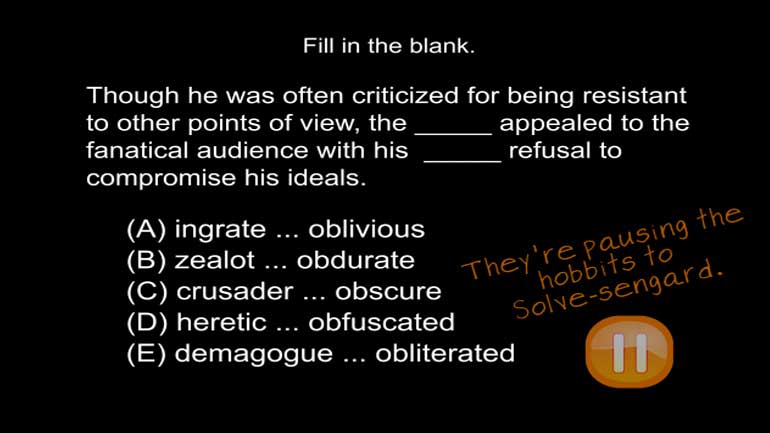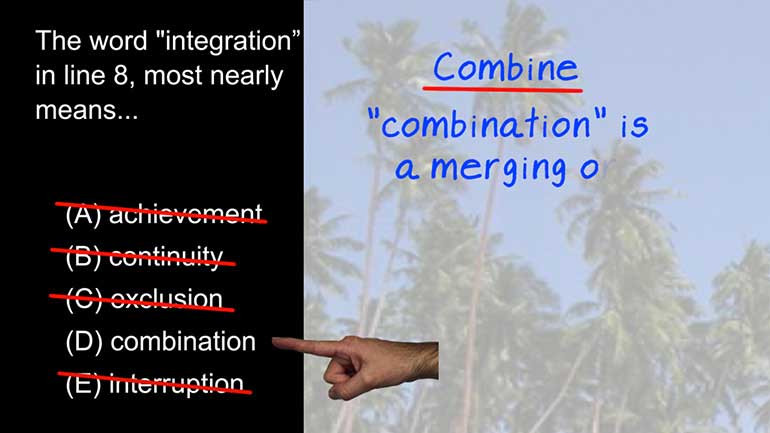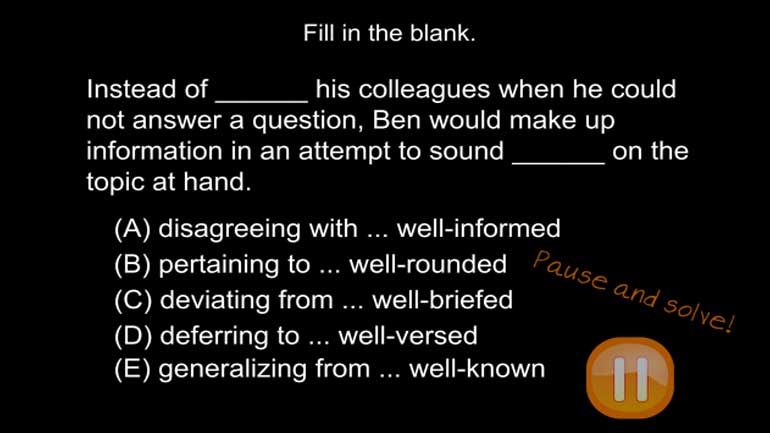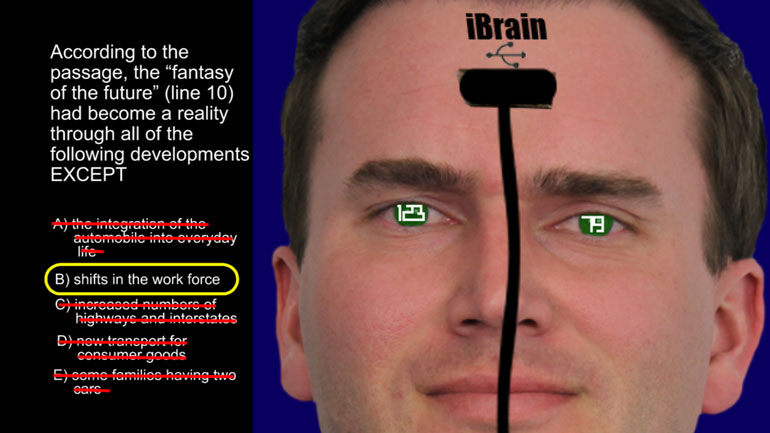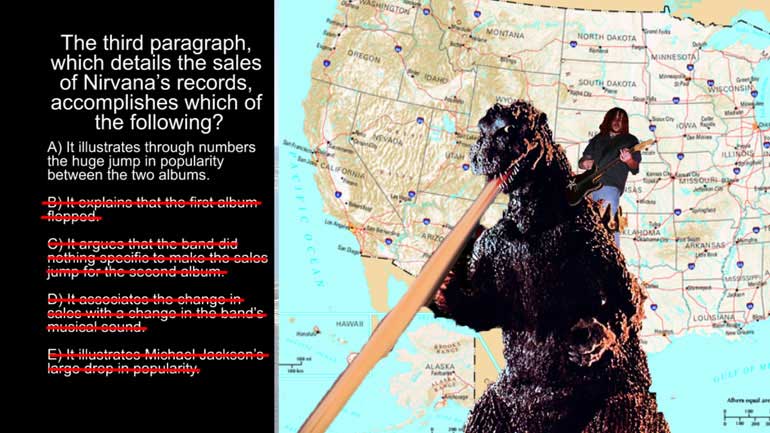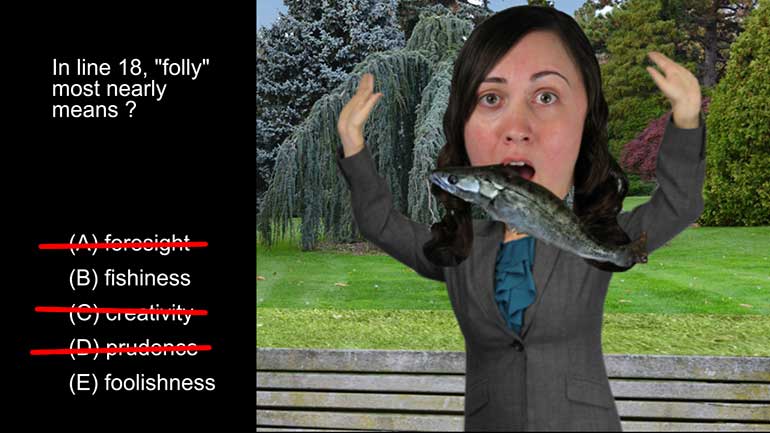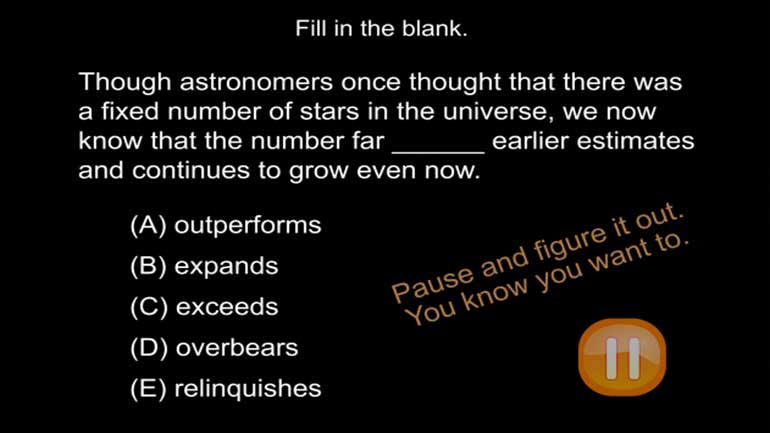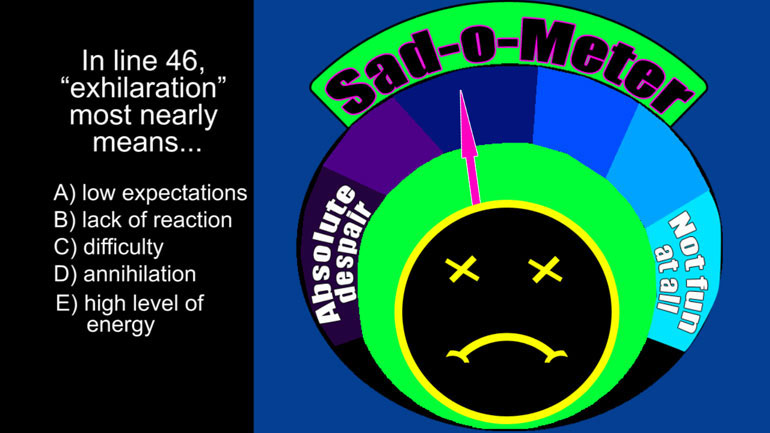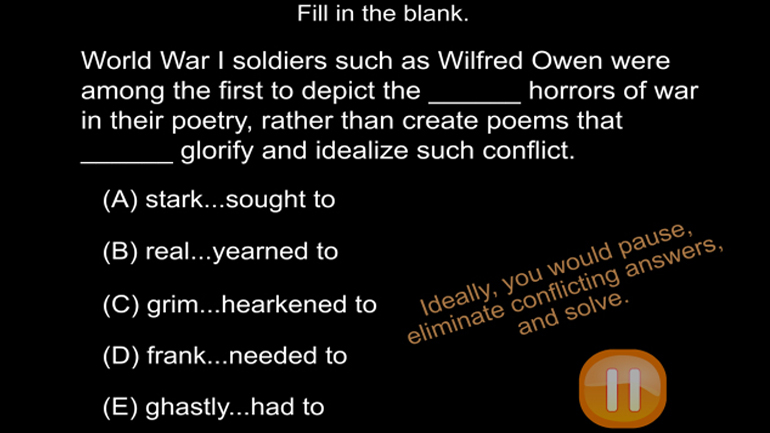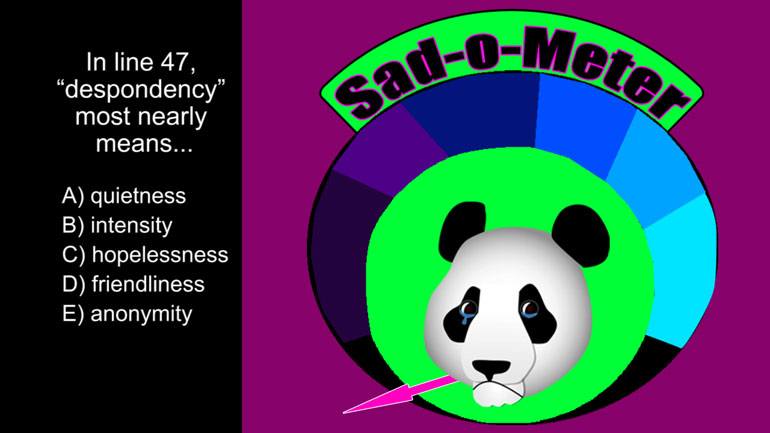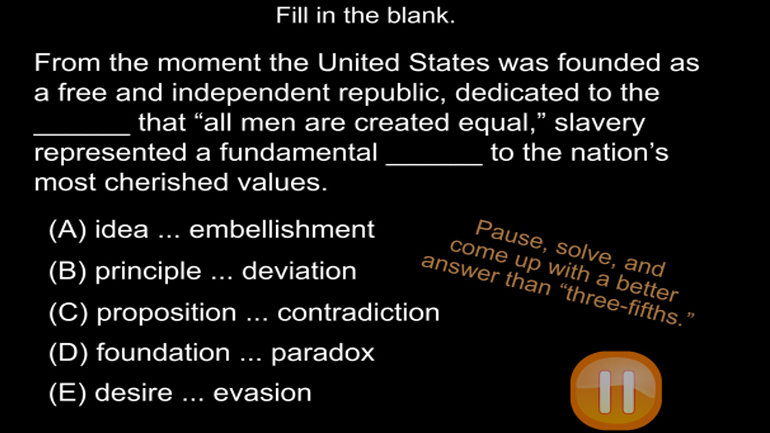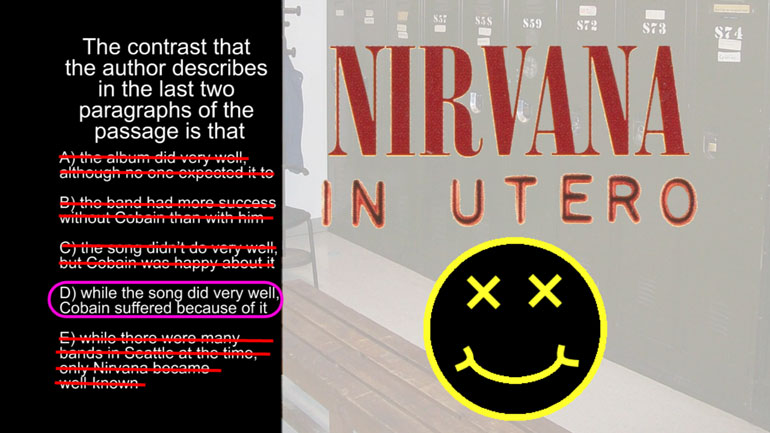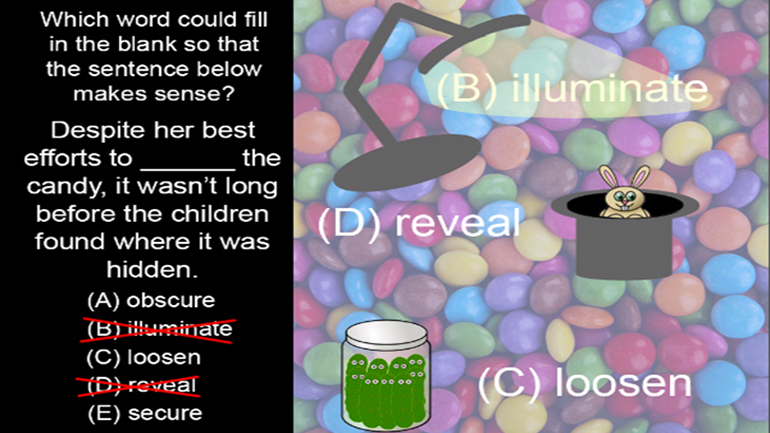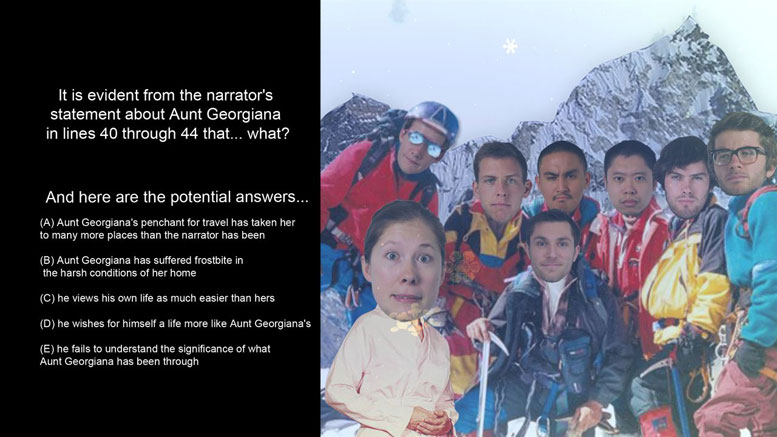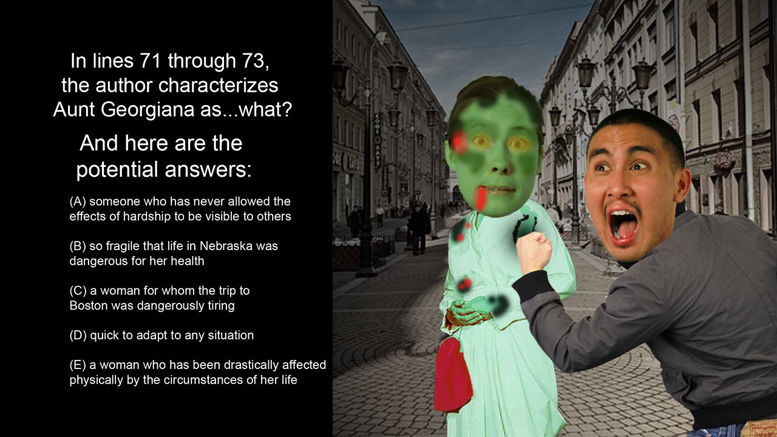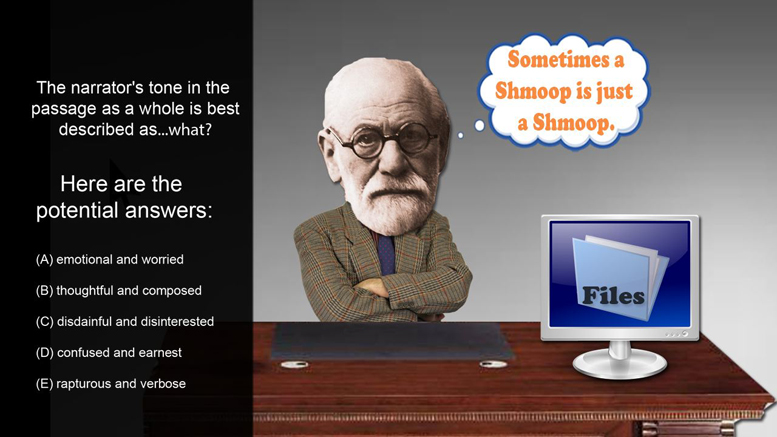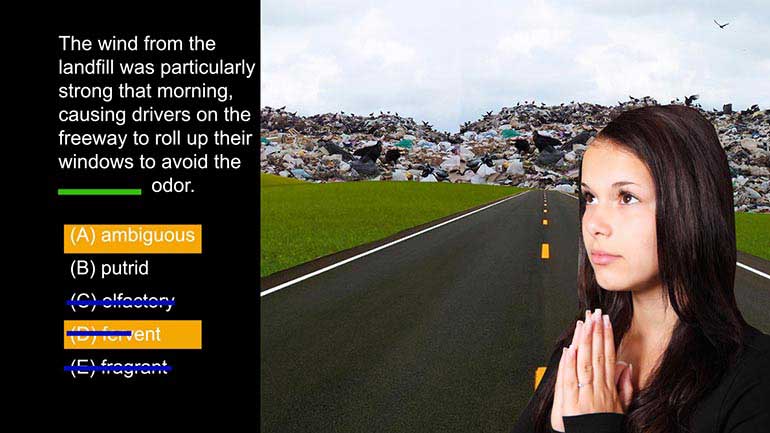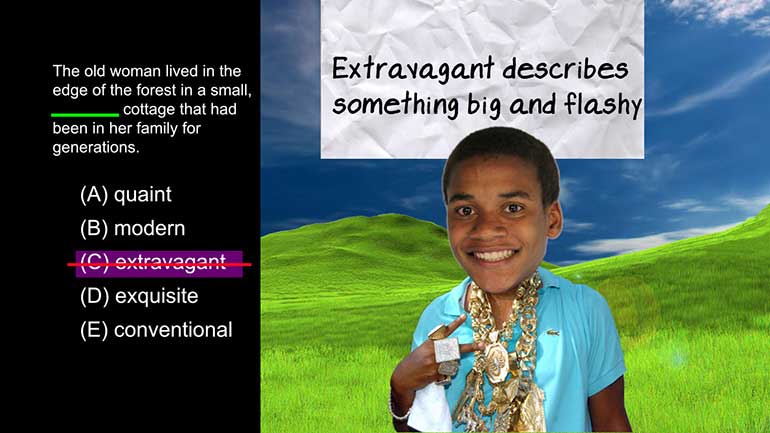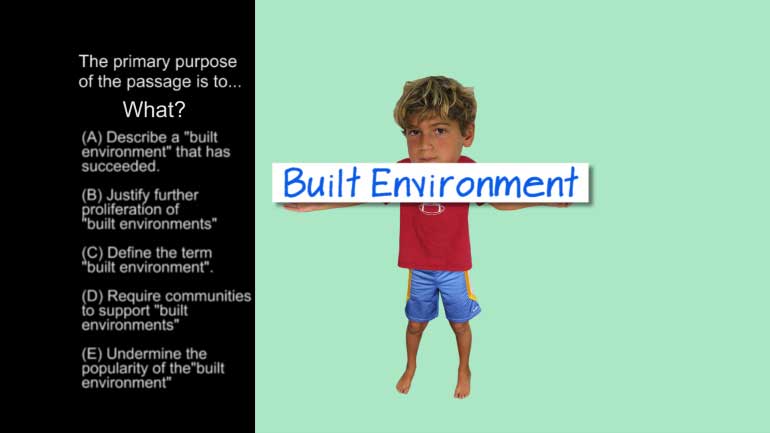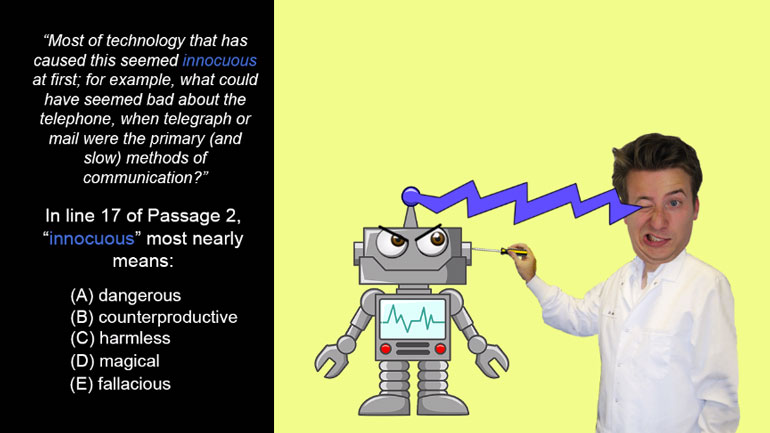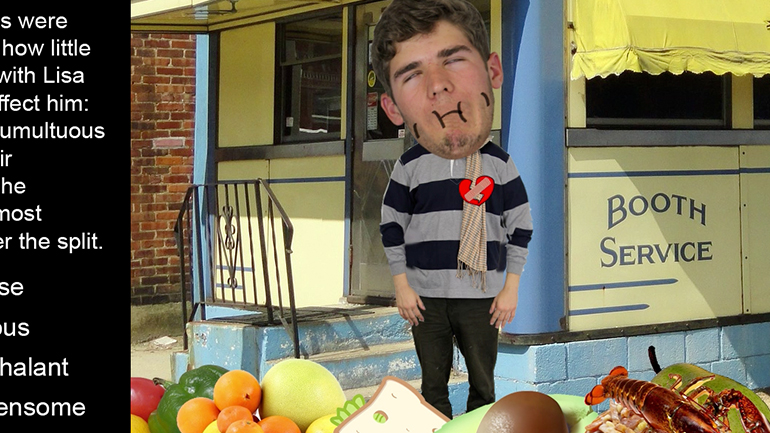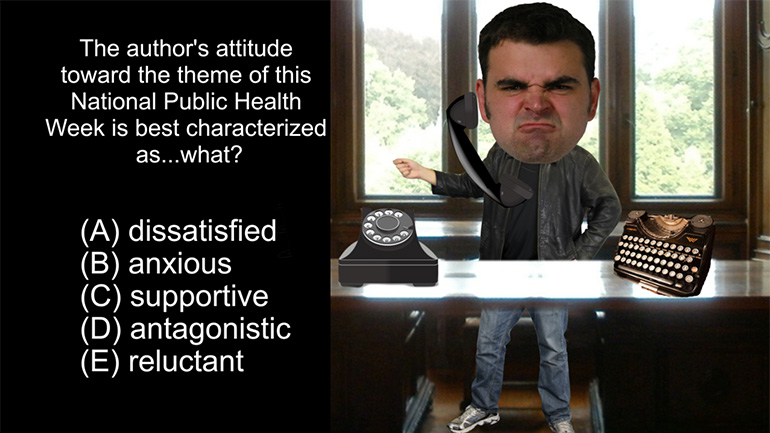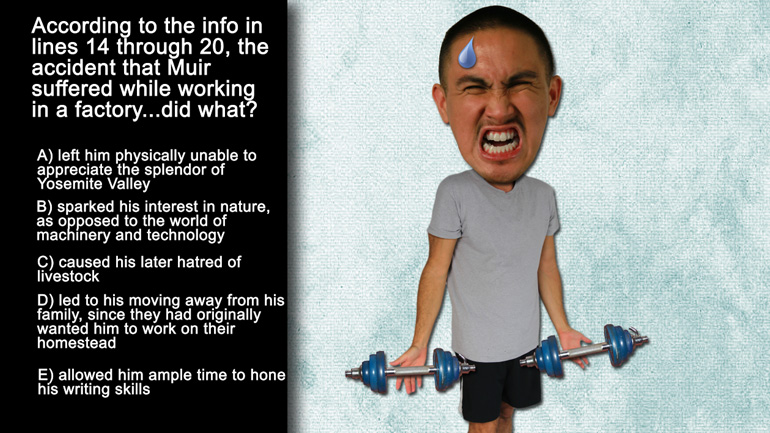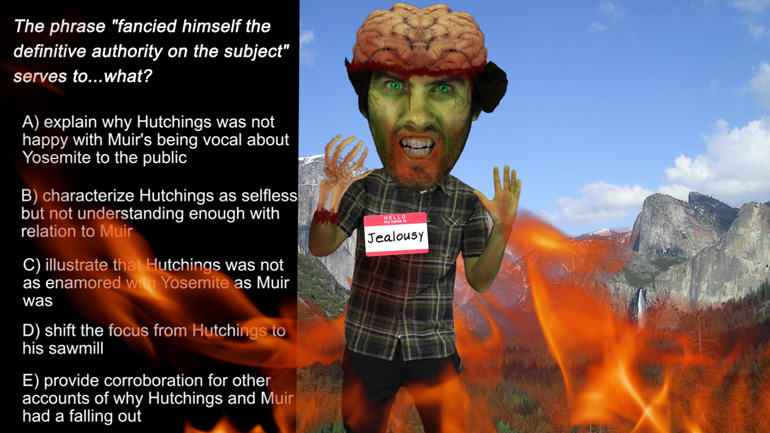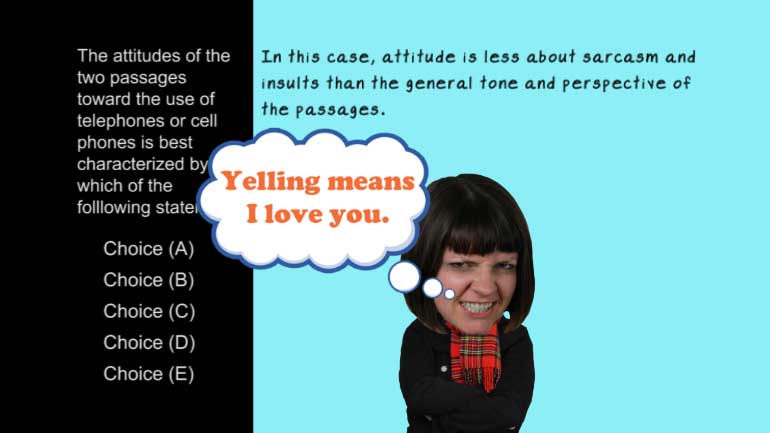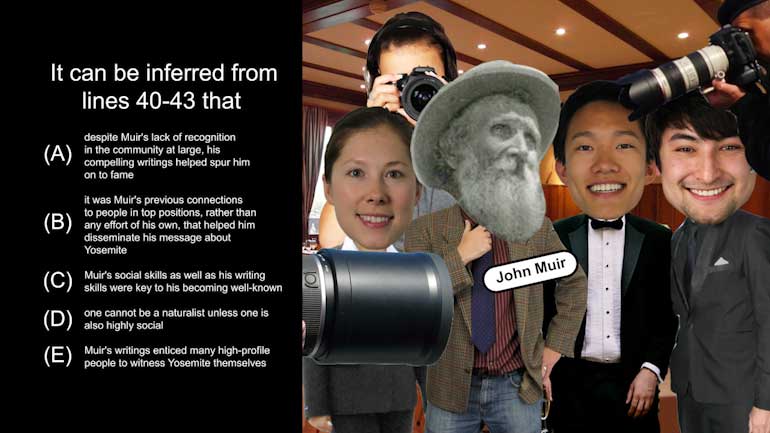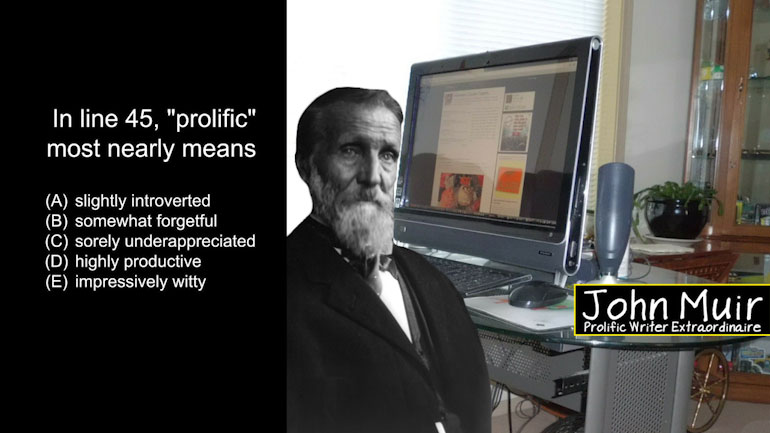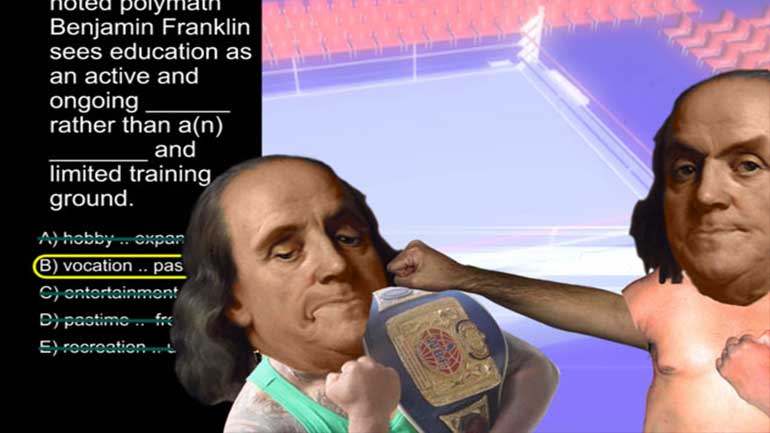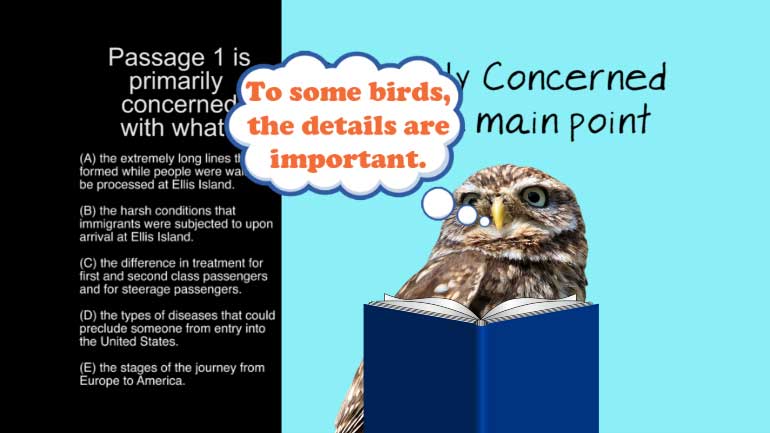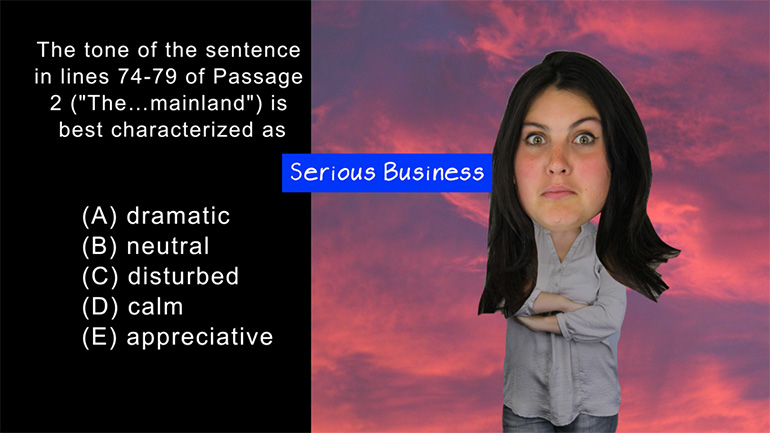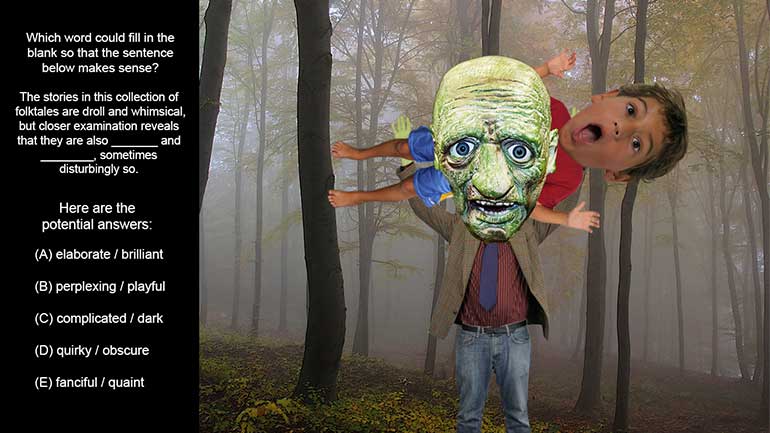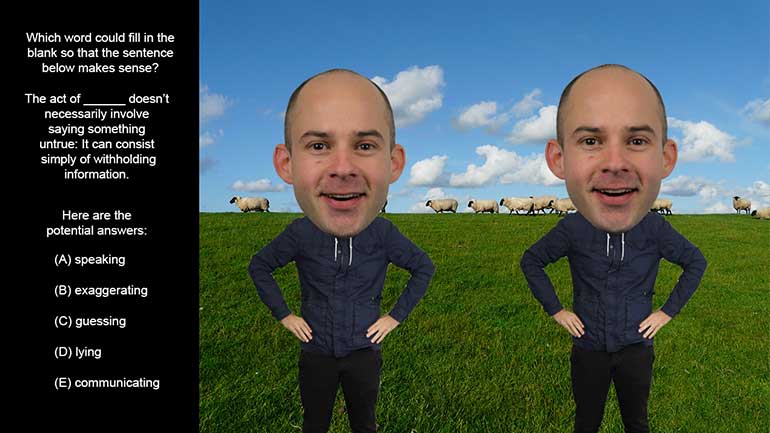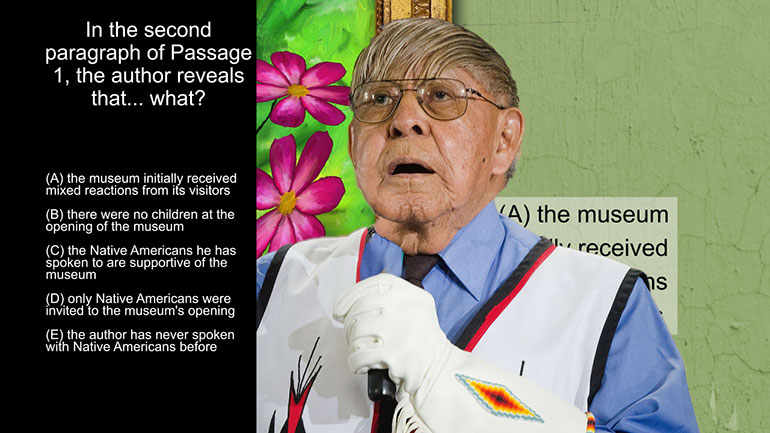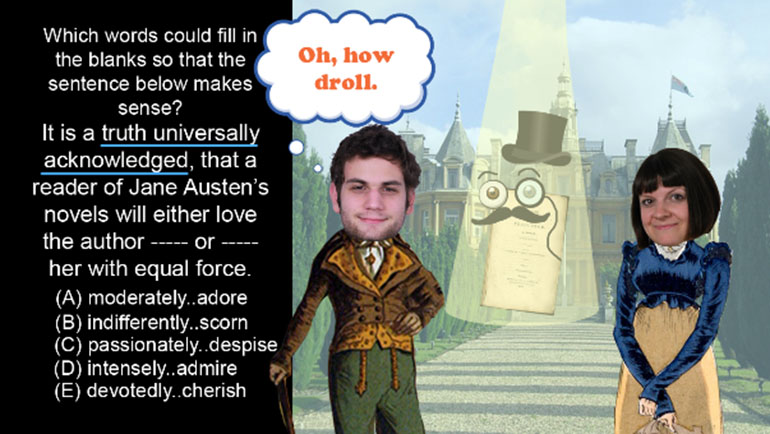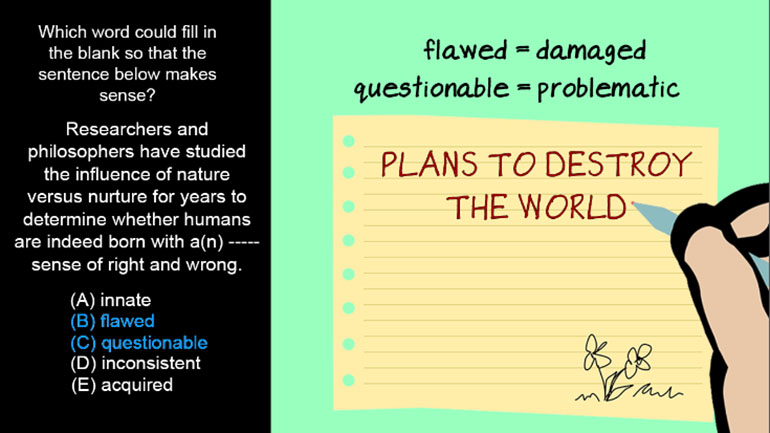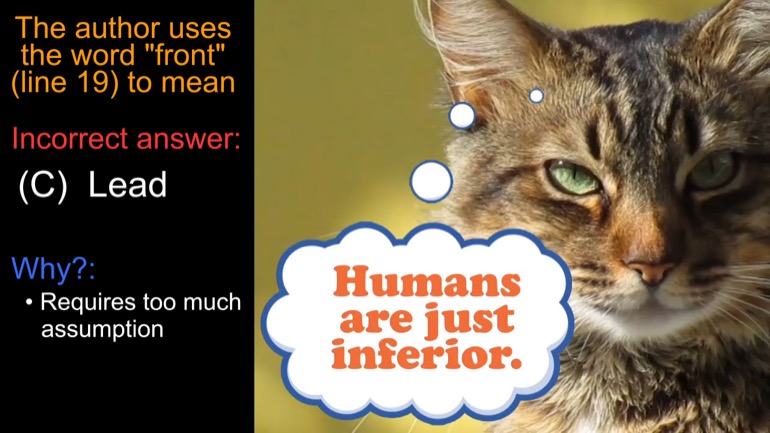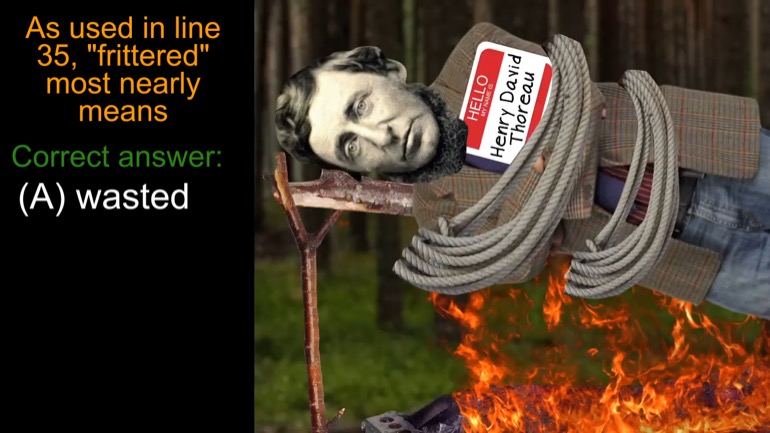ShmoopTube
Where Monty Python meets your 10th grade teacher.
Search Thousands of Shmoop Videos
SAT Reading Videos 212 videos
SAT Reading Section: Sentence Completion Drill 1, Problem 1
SAT Reading 2.4 Long Passages 176 Views
Share It!
Description:
Reading Long Passages: Drill 2, Problem 4
Transcript
- 00:03
Here's your shmoop du jour... If you need to review your old friend, Mr.
- 00:06
Long Passage, feel free to press the pause.
- 00:33
In line 32, "alight" most nearly means...what?
- 00:37
And here are the potential answers...
- 00:41
Our narrator's waiting by the train—but
Full Transcript
- 00:43
where's Aunt Georgiana? Oh, she's just busy being the "last of the passengers to alight."
- 00:51
Though these days "alight" is usually used to describe when something lands from
- 00:55
the sky--like an airplane or a flying monkey...
- 00:57
The context of this passage makes it crystal clear that the narrator is simply referring
- 01:02
to his aunt exiting the train--which apparently took her a very long time.
- 01:07
What, did she get locked in the bathroom or something?
- 01:14
Just turn and push, Auntie G. Armed with this context, we can start throwing
- 01:18
incorrect answers from the train.
- 01:20
Let's begin by eliminating (C), since she must have had a ticket to board the train
- 01:24
in the first place--unless she's an evil master of deception.
- 01:28
We find that quite doubtful. (B) is easy to nix as well. It seems highly
- 01:32
unlikely that such an old and weathered woman is going to be taking any leaps, or giant
- 01:36
jumps from the train.
- 01:38
The narrator probably would have seen her if she went to retrieve her baggage, so (D)
- 01:42
is out as well.
- 01:43
"Attend" is usually used to describe when somebody shows up at an event.
- 01:47
Though Auntie G is showing up somewhere, exiting a train isn't much of an event--for most
- 01:52
people anyway.
- 01:53
Really, (A) just doesn't make any sense at all, so ... buh-bye.
- 01:57
The prefix "dis" can sometimes mean to separate from something, while "embark"
- 02:02
means "to begin a journey."
- 02:03
Aunt Georgiana is at last separating herself from this train and heading off to meet her
- 02:08
nephew. Knowing all this, we're proud to declare (E) the correct answer.
- 02:12
Maybe Auntie G should take some disembarking lessons before her next train ride.
Related Videos
How was the Beanie Baby era parallel to the Tulip Bubble? Similar events, only the TulipMania almost bankrupted Holland. Bean Babies only bankrupte...
Contemplating one's life is key to fulfilled happiness. Thoreau's theme revolves around the simple life well lived. He clearly never tried virtual...
Thoreau was all about simplicity; anything that took away from his vision was the enemy. Mechanical aids were one of them. Guess he had to train a...
Thoreau uses "front" to mean "face". He wants to face The Facts of Life without shying away from our natural tendencies, roots, and the simply way...
What does "frittered away" mean in this context? Wasted. Wasted by the way. Thoreau claims we fritter away our lives praying to modern complex dist...


